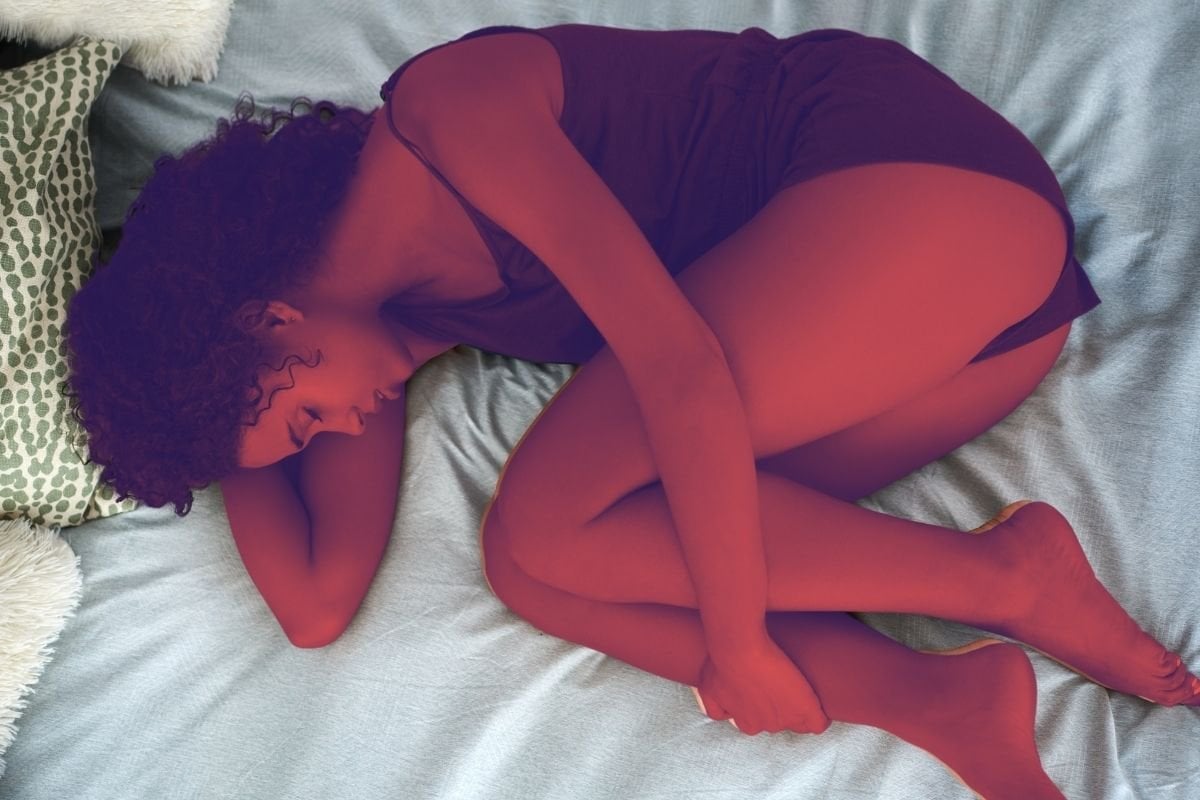
Between stabby stomach cramps, achy *everything* and feeling like you want to punch people in the face, PMS can be the absolute pits. But did you know there's a whole ~other~ level of PMS? We didn't.
While some of us might relate to the above symptoms, others suffer premenstrual symptoms that go far beyond feeling irritable, sensitive and lethargic.
We're talking about things like wild mood swings, outbursts of rage, depression, anxiety and barely being able to leave bed for days on end.
Welcome to the crippling period condition that is premenstrual dysphoric disorder (PMDD).
Watch: Here's what your period would be like if it was a person. Post continues below.
Heard of PMDD before?
It's a serious medical condition that affects a whopping one in 20 women. Yet, many of us have never heard of it. And while they may show symptoms, many women don't even know they have it. Pretty crazy, right?
The symptoms are debilitating and can result in everything from lapsed careers to broken relationships and a negative self-image. It basically makes it hard to get on with your daily life.
